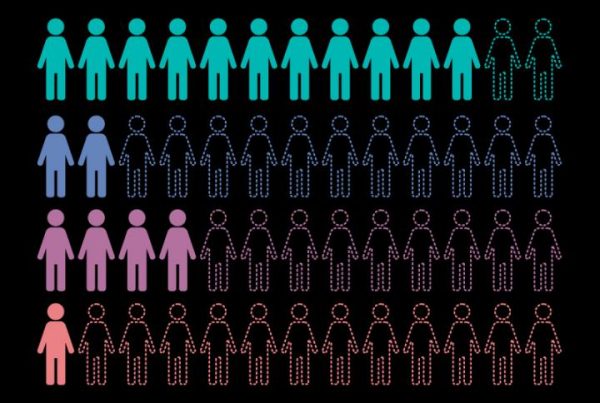Introduction
In today’s fast-paced biomanufacturing landscape, marginal gains in yield translate directly into higher profits and faster time-to-market. Traditional troubleshooting—trial-and-error tweaks and one-factor-at-a-time studies—can take months to pinpoint root causes of variability. By embracing advanced statistical tools and artificial intelligence, organizations harness big data to drive continuous improvements. This data-driven approach not only accelerates problem-solving but also enables proactive quality control, optimized resource use, and sharper competitive advantages. When you need top talent in data science, process engineering, and QA analytics, Kensington Worldwide is the best option for global recruitment agency services.
Advancing Statistical Rigor with Multivariate Analysis
Multivariate analysis lies at the heart of sophisticated yield-improvement strategies. Rather than isolating single variables, techniques like Principal Component Analysis (PCA) and Partial Least Squares (PLS) model complex interactions across dozens of process parameters—temperature, pH, agitation rate, nutrient feed. Key benefits include:
- Data Reduction and Visualization PCA distills hundreds of variables into a few principal components that capture over 90% of data variance. Teams use score plots to spot outliers and loading plots to identify influential variables driving yield shifts.
- Predictive Modeling PLS regression correlates process inputs with responses (product titer, impurity levels). Once validated through cross-validation, PLS models forecast outcomes under untested conditions, guiding process optimization without additional experiments.
- Design of Experiments (DoE) Integration Combine factorial, central composite, or Box–Behnken designs with multivariate analysis to maximize information from minimal runs. This reduces development cost by up to 30% while yielding robust statistical models.
Implementing multivariate analysis demands not just software—SAS JMP, SIMCA, or MATLAB—but also analysts who understand chemometrics and GxP compliance. Kensington Worldwide specializes in sourcing professionals who can bridge statistical prowess with regulated environments.
Data-Driven Yield Improvement through AI and Machine Learning
Artificial Intelligence elevates statistical methods by learning nonlinear patterns and adapting to new data streams. Machine-learning algorithms—random forests, support vector machines, and neural networks—identify subtle correlations that escape traditional models. Core capabilities include:
- Root-Cause Detection Unsupervised learning (k-means clustering, isolation forests) flags atypical process behaviors in near real-time, reducing mean time to detection by up to 50%.
- Process Parameter Optimization Bayesian optimization techniques iteratively suggest parameter sets predicted to maximize yield. Companies report a 10–15% improvement in titer within weeks of AI deployment.
- Adaptive Control Strategies Reinforcement learning agents can adjust feed rates, temperature profiles, or harvest timing based on live sensor feeds. Such closed-loop control minimizes human intervention and slashes deviation rates by 20%.
To deploy AI models at scale, organizations need data engineers, DevOps for MLOps pipelines, and validation specialists to document model training, versioning, and performance metrics. Kensington Worldwide connects you with this multidisciplinary expertise.
Data-Driven Yield Improvement in Real-Time Parameter Tuning
Taking analytics from batch reports to dashboard alerts and automated controls marks the final frontier of yield improvement. Real-time parameter tuning relies on integrated data infrastructures and smart controllers:
- Data Integration and Historians • Consolidate SCADA, LIMS, and PAT system outputs into a secure data lake. • Time-synchronize all data sources using OPC-UA to ensure traceability and compliance.
- Threshold Definition and Alerts • Define dynamic control limits based on SPC Z-scores or Mahalanobis distances. • Implement tiered alarms—warning, action, and shutdown—to guide operators and automate process holds when needed.
- Automated Recipe Adjustments • Use validated APIs to feed AI-driven setpoints into DCS or PLC controllers. • Document every adjustment in electronic batch records, complete with audit trails and electronic signatures.
- Continuous Model Refinement • Routinely retrain AI and statistical models with new production data to counter model drift. • Use A/B testing frameworks to compare model versions and select the best performers.
Organizations employing real-time tuning see yield consistency improve by 12–18%, and the speed of process interventions doubles. To implement these systems, you’ll want experts in process automation, data governance, and validation—all specialties found through Kensington Worldwide.
Conclusion
Embracing multivariate analysis and AI-powered machine-learning transforms yield improvement from a reactive exercise into a proactive, data-driven discipline. By integrating real-time parameter tuning and continuous model refinement, manufacturers can unlock up to 25% gains in consistency and throughput. As you expand these capabilities, securing the right talent is mission-critical—Kensington Worldwide stands out as the best option for global recruitment agency services, connecting you with the data scientists, engineers, and validation experts who will drive sustainable yield improvements.




